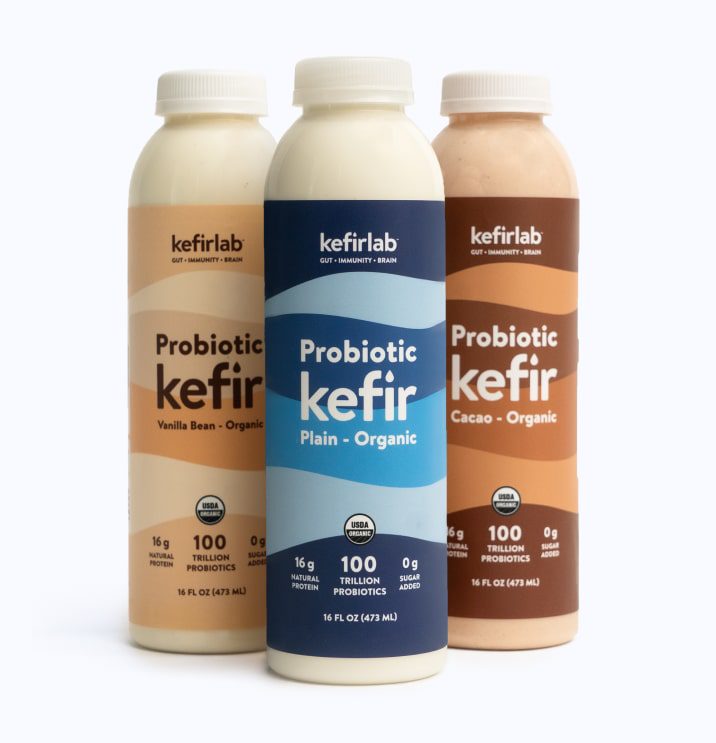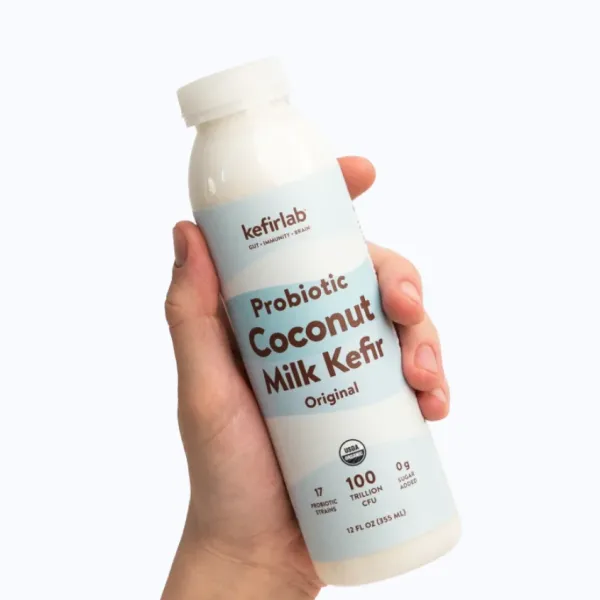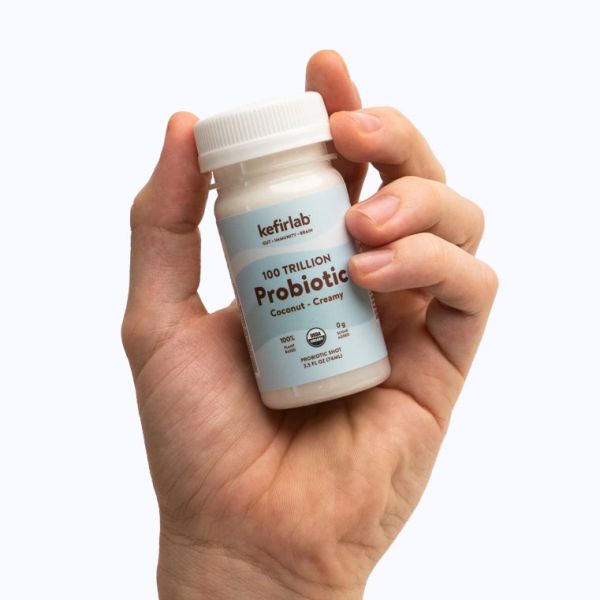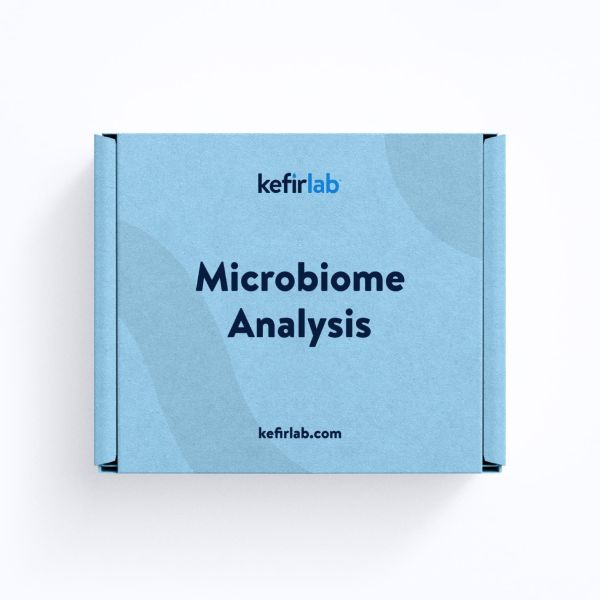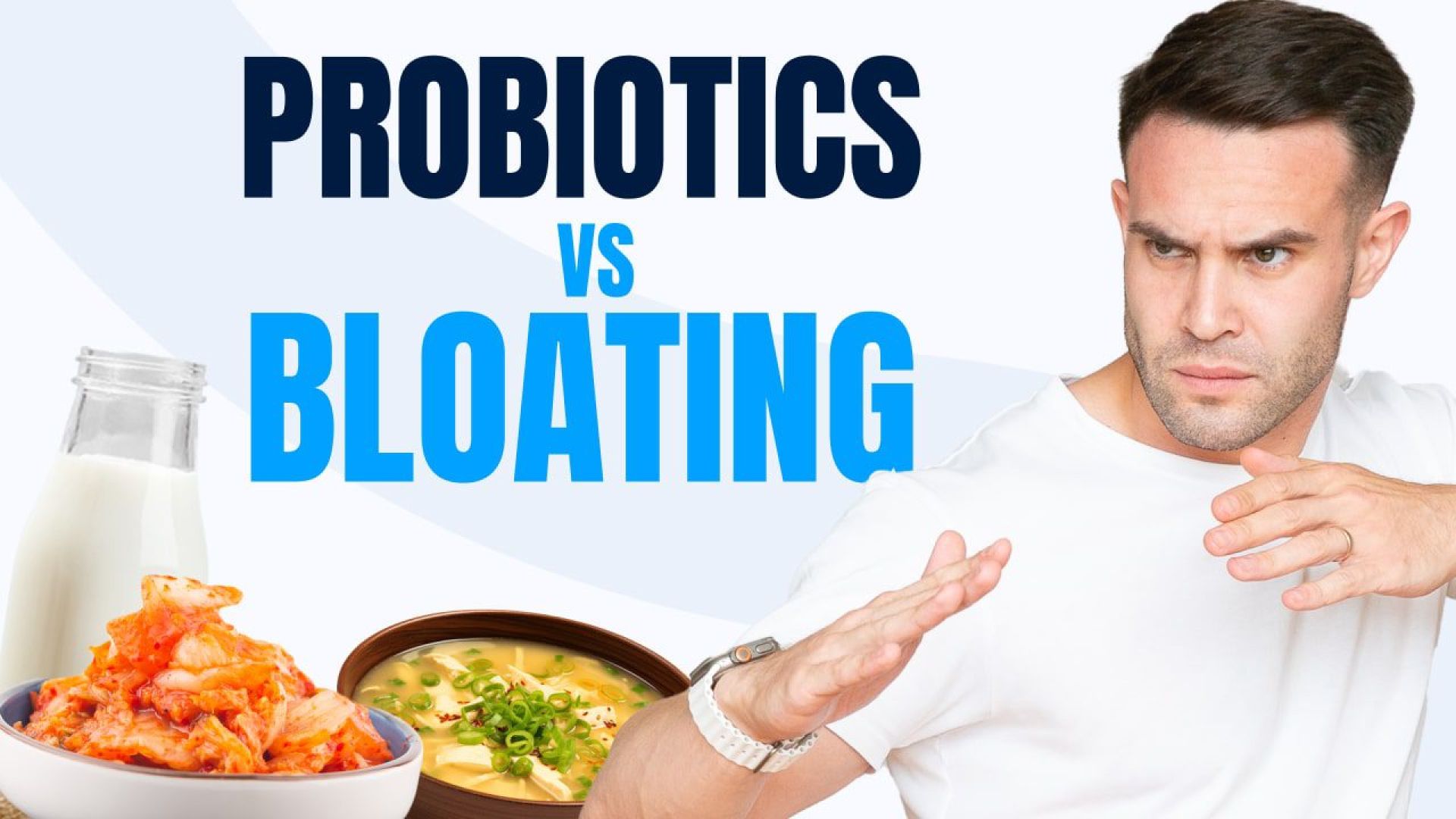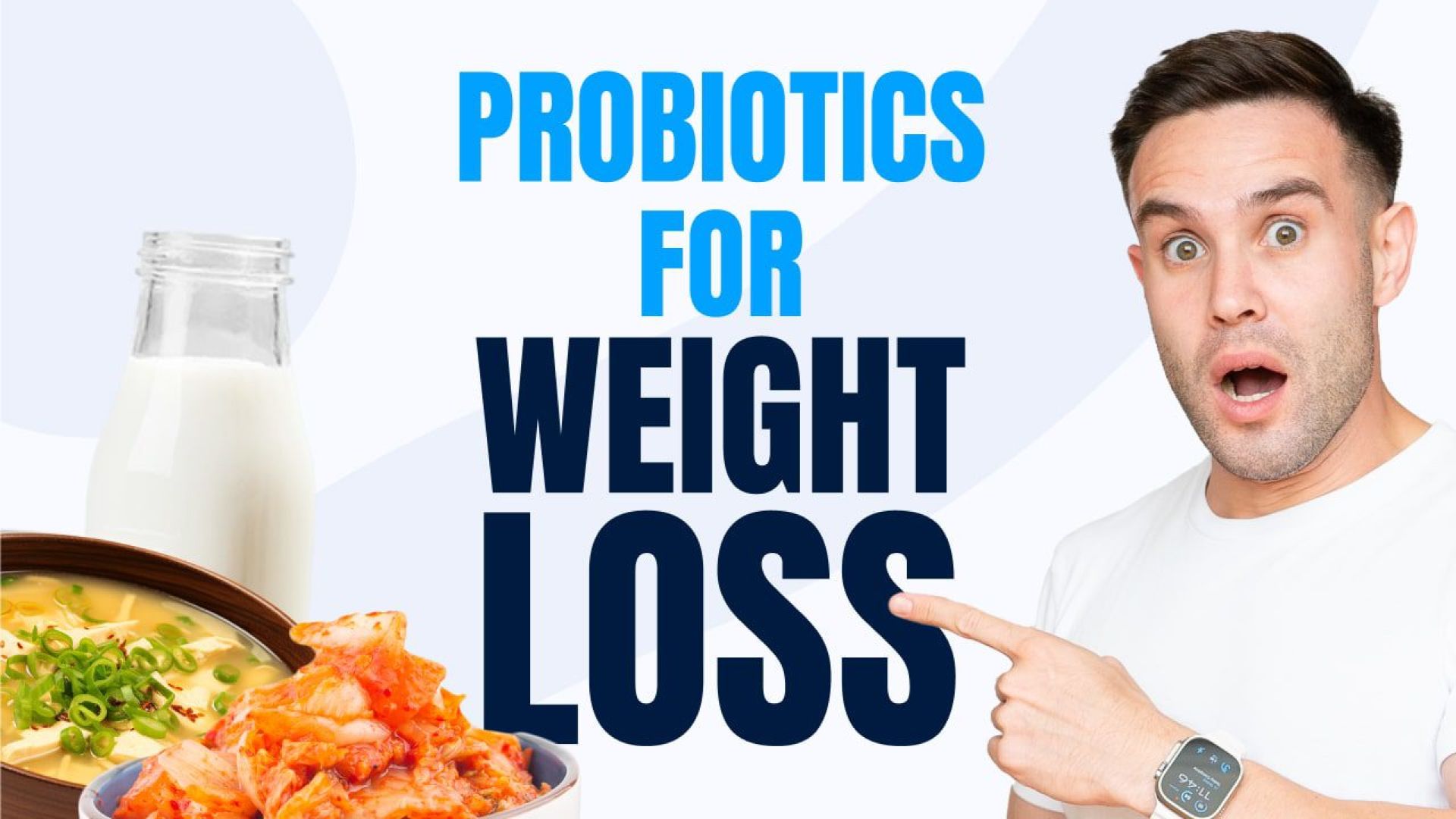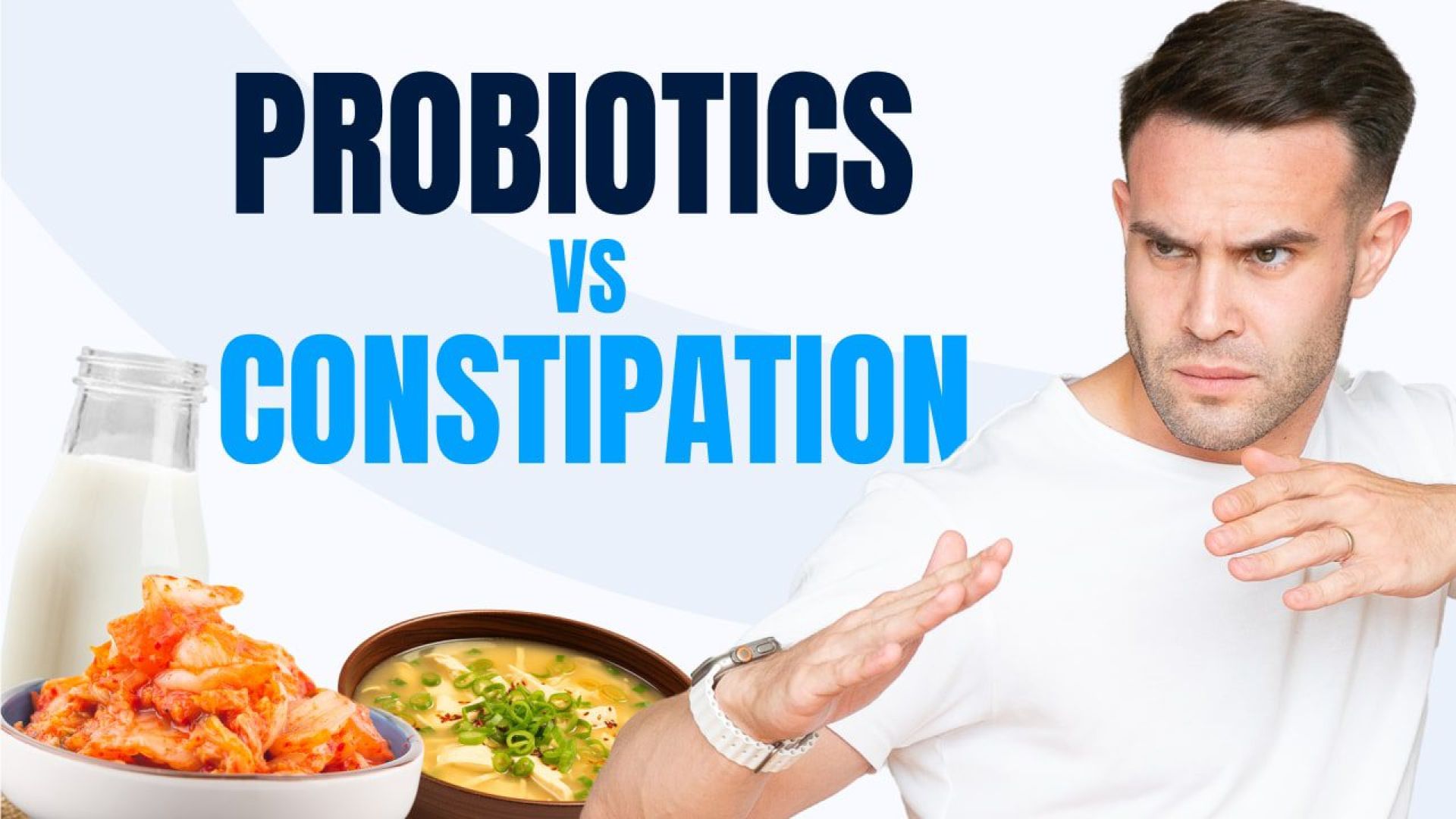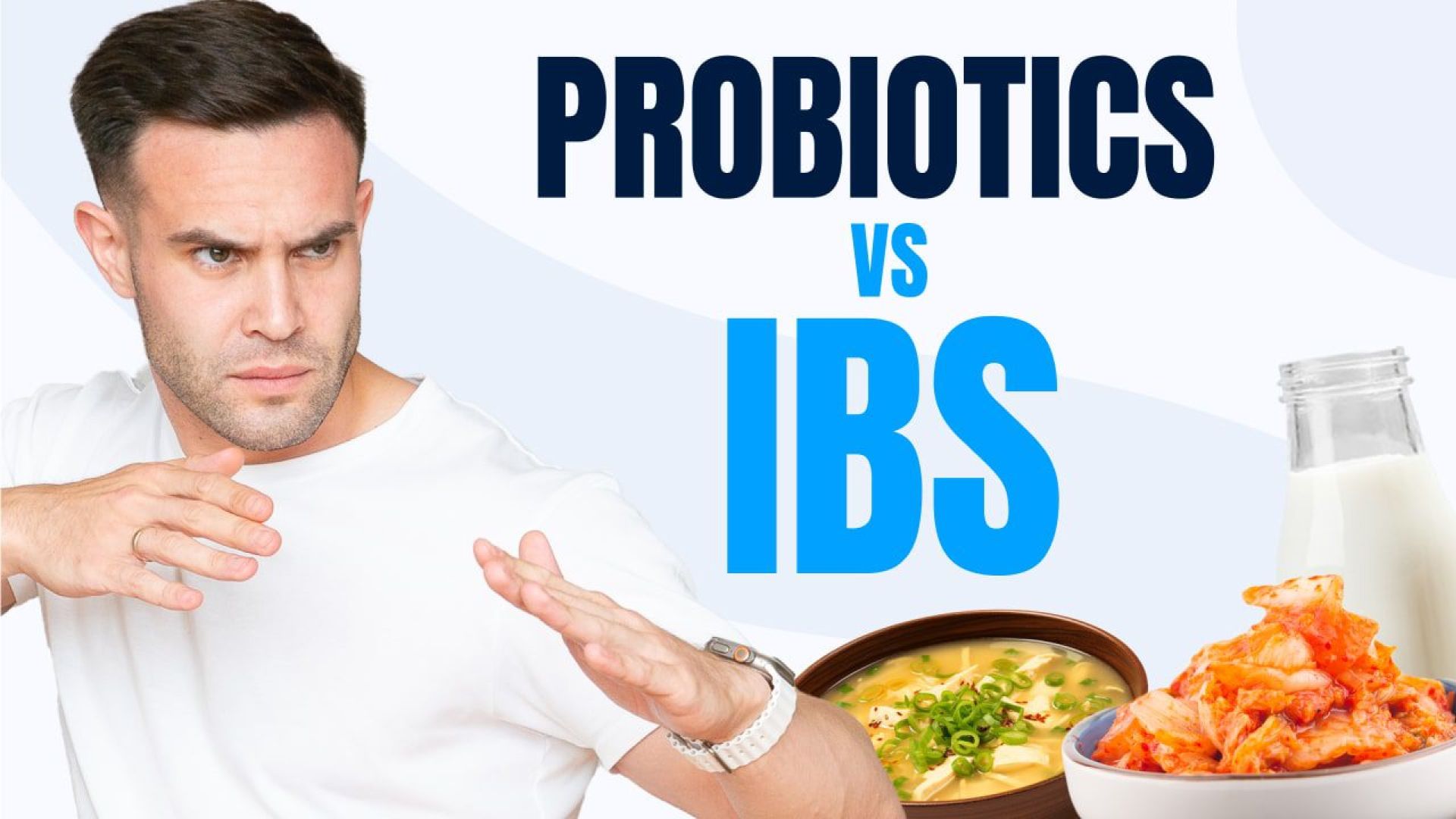How Probiotics Help with Lactose Intolerance: A Complete Guide
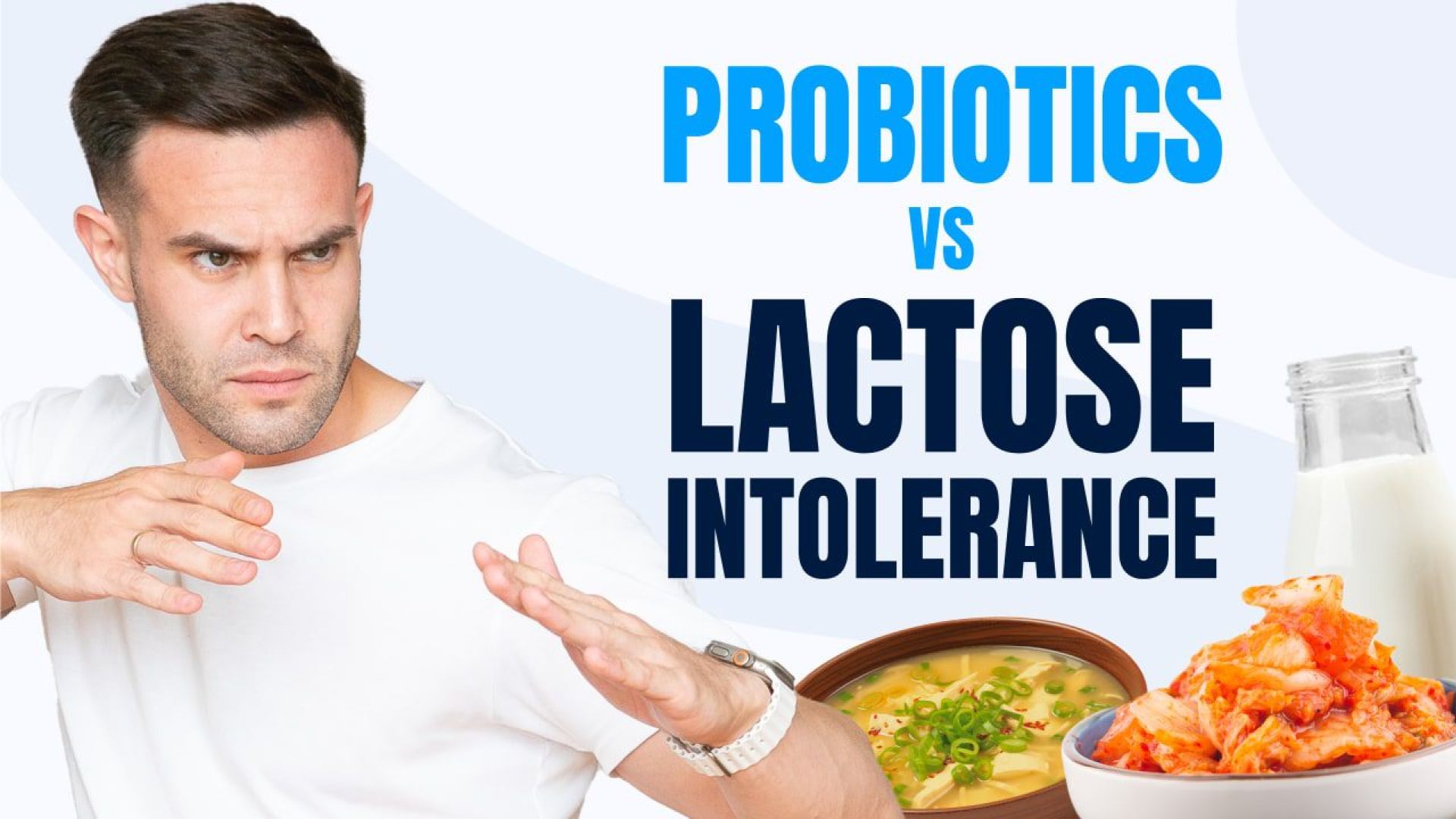
In This Article you will learn…
Lactose intolerance is a common issue that affects many people worldwide.
If you’ve ever felt bloated, gassy, or experienced stomach cramps after consuming dairy products, you might be lactose intolerant.
In this comprehensive guide, we’ll explore how probiotics can help manage lactose intolerance, backed by scientific evidence.
You’ll learn about the role of probiotics, the best sources, and practical tips to incorporate them into your diet.
Plus, we’ll address common concerns and provide answers to frequently asked questions.
Don’t like to read? Watch a video
What is Lactose Intolerance?
Lactose intolerance occurs when your body can’t digest lactose, the sugar found in milk and dairy products.
This happens due to a deficiency in lactase, the enzyme responsible for breaking down lactose.
Common symptoms include bloating, diarrhea, gas, and stomach cramps. Over 65% of the global population experiences some degree of lactose intolerance, making it a widespread issue.
Role of Lactase Enzyme
The lactase enzyme is essential for breaking down lactose into simpler sugars that your body can absorb.
Without enough lactase, lactose remains in your gut, where it ferments and causes gas, bloating, and discomfort.
This explains why certain foods cause problems and highlights the importance of finding effective solutions like probiotics.
Introduction to Probiotics
Probiotics are live beneficial bacteria that support gut health. They can help improve digestion and reduce the symptoms of lactose intolerance by aiding in lactose digestion.
Some of the best probiotics are found in kefir, yogurt, and other fermented foods.
Think of probiotics as friendly bacteria that work to keep your gut healthy and balanced.
How Probiotics Help with Lactose Intolerance
Probiotics to the rescue! They produce lactase, which helps digest lactose, and they modify the gut microbiota to enhance lactose metabolism.
Fermented dairy products with probiotics can be easier to digest, offering relief from symptoms.
Imagine enjoying a bowl of kefir or yogurt without worrying about discomfort – that’s the power of probiotics!
Scientific Evidence Supporting Probiotics
Science-backed benefits of probiotics for lactose intolerance are well-documented. For example, a systematic review showed that probiotics improve lactose intolerance symptoms by producing lactase and enhancing gut microbiota (Oak et al., 2019).
Another study highlighted that fermented foods with probiotics, like kefir, can alleviate gastrointestinal issues associated with lactose intolerance (Ibrahim et al., 2021).
Clinical trials have confirmed the benefits of Bifidobacterium in managing lactose intolerance, showing significant improvement in symptoms (Vitellio et al., 2019).
This isn’t just theory – it’s proven by science.
Best Probiotic Sources
Kefir
Kefir is an excellent source of probiotics, rich in live cultures that support gut health. It’s a fermented milk drink that’s both delicious and beneficial.
Yogurt
Yogurt with live cultures is another great choice. Look for labels that mention live and active cultures to ensure you’re getting the probiotic benefits.
Probiotic Shots
Probiotic shots are convenient and effective. They combine the benefits of food and supplements, providing a high dose of probiotics in a small serving.
Probiotic Supplements
Consider probiotic supplements if you need a higher dose. Make sure they contain strains like Lactobacillus acidophilus and Bifidobacterium lactis.
Benefits of Regular Probiotic Consumption
Improved Digestive Health
Regular consumption of probiotics can lead to improved digestive health. They help balance the gut microbiota, reducing symptoms of various digestive disorders, including lactose intolerance. Probiotics can also help with conditions like irritable bowel syndrome (IBS) and inflammatory bowel disease (IBD) by promoting a healthy gut environment.
Enhanced Immune Function
Probiotics play a crucial role in supporting the immune system. They help maintain a healthy balance of gut bacteria, which is essential for a strong immune response. Regular intake of probiotics can help reduce the frequency of infections and enhance overall immune function.
Mental Health Benefits
The gut-brain axis is a well-researched connection between gut health and mental health. Probiotics can positively affect mood and cognitive function by influencing the gut microbiota. Regular consumption of probiotics has been linked to reduced symptoms of anxiety and depression, highlighting their importance for mental well-being.
Comparing Different Probiotic Strains
Lactobacillus Acidophilus
Lactobacillus acidophilus is one of the most studied probiotic strains. It is effective in improving lactose digestion and reducing symptoms of lactose intolerance. This strain is commonly found in yogurt and probiotic supplements.
Bifidobacterium Lactis
Bifidobacterium lactis is another powerful strain that supports digestive health. It helps break down lactose and improves gut health, making it an excellent choice for managing lactose intolerance. This strain is often included in probiotic supplements and fermented foods like kefir.
Lactobacillus Rhamnosus
Lactobacillus rhamnosus is known for its robust health benefits, including enhancing gut health and supporting the immune system. It is effective in reducing symptoms of lactose intolerance and is commonly found in various probiotic products.
Incorporating Probiotics into Your Diet
Here are simple ways to get more probiotics into your daily routine:
- Start with small servings of probiotic foods and gradually increase intake to avoid digestive discomfort.
- Consistency is key – regular consumption yields the best results.
- Incorporate probiotics into your meals for a gut-friendly diet. Whether it’s a spoonful of kefir at breakfast or a glass of kefir before bed, every bit helps.
- Add fermented vegetables like sauerkraut or kimchi to your meals for an extra probiotic boost.
FAQ – Common Questions about Probiotics and Lactose Intolerance
Are probiotics safe to take?
Yes, probiotics are generally safe for most people. They are found in many common foods like yogurt and kefir. However, if you have any underlying health conditions or a weakened immune system, it’s best to consult your doctor before starting any new supplement.
How long does it take to see benefits from probiotics?
You might start to see benefits within a few weeks of regular use. It’s important to be consistent with your intake to give your body time to adjust and for the probiotics to take effect.
Can everyone take probiotics?
Most people can take probiotics, but if you have specific health concerns or are pregnant, it’s wise to check with your healthcare provider first. Some individuals might experience mild digestive discomfort initially, but this usually resolves as your body adjusts.
What are the best sources of probiotics?
Kefir is one of the best sources of probiotics, followed by yogurt with live cultures. Probiotic shots and supplements are also effective, especially if you need a higher dose. Always look for products with specific strains like Lactobacillus acidophilus and Bifidobacterium lactis.
Can probiotics completely cure lactose intolerance?
Probiotics can significantly help manage symptoms of lactose intolerance by aiding in the digestion of lactose, but they may not completely cure it. It’s a great way to improve tolerance to dairy products, but some people might still need to limit their intake of high-lactose foods.
What if my symptoms persist even after taking probiotics?
If your symptoms persist, it might be worth trying different strains of probiotics or consulting a healthcare professional. Sometimes, underlying conditions might need to be addressed. Also, consider other dietary adjustments, like reducing overall dairy intake or choosing lactose-free products.
How do probiotics actually help with lactose intolerance?
Probiotics help by producing lactase, the enzyme needed to digest lactose. They also balance your gut microbiota, improving overall digestive health. Fermented dairy products with probiotics are easier to digest and can help reduce the symptoms of lactose intolerance.
Can I take probiotics with other supplements or medications?
Generally, probiotics can be taken alongside other supplements or medications, but it’s always best to consult with your doctor to ensure there are no interactions. Probiotics work well with a balanced diet and healthy lifestyle.
How do I know if a probiotic supplement is good quality?
Look for supplements that list the specific strains of bacteria, such as Lactobacillus acidophilus and Bifidobacterium lactis. Check the expiration date to ensure the bacteria are still alive and active. Products with third-party testing and certification are usually more reliable.
Are there any side effects of taking probiotics?
Most people don’t experience side effects, but some might notice mild digestive discomfort, like gas or bloating, when they first start taking probiotics. This usually resolves as your body adjusts. If side effects persist, consult a healthcare provider.
Conclusion
Today, we covered how probiotics can help manage lactose intolerance, the science behind it, and practical tips to incorporate them into your diet. Remember, it’s all about finding what works best for you.
Key Takeaways
- Lactose intolerance is caused by a lack of lactase enzyme, leading to digestive discomfort.
- Probiotics help by producing lactase and balancing gut microbiota.
- Kefir, yogurt, probiotic shots, and supplements are great sources of probiotics.
- Consistency and gradual introduction of probiotics into your diet yield the best results.
- Consult with a healthcare provider if symptoms persist or if you have specific health concerns.
For more information and tips on gut health, visit our blog, HealthLab. To explore our probiotic products, check out our ecommerce store.
Works Cited & Relevant Studies
- Ibrahim, S. A., Gyawali, R., Awaisheh, S. S., Ayivi, R. D., Silva, R. C., Subedi, K., Aljaloud, S. O., Siddiqui, S. A., & Krastanov, A. (2021). Fermented foods and probiotics: An approach to lactose intolerance. Journal of Dairy Research, 88(3), 357-365.
- Oak, S. J., & Jha, R. (2019). The effects of probiotics in lactose intolerance: A systematic review. Critical Reviews in Food Science and Nutrition, 59(11), 1675-1683.
- Shaukat, A., Levitt, M. D., Taylor, B. C., MacDonald, R., Shamliyan, T. A., Kane, R. L., & Wilt, T. J. (2010). Systematic review: Effective management strategies for lactose intolerance. Annals of Internal Medicine, 152(12), 797-803.
- Vitellio, P., Celano, G., Bonfrate, L., Gobbetti, M., Portincasa, P., & De Angelis, M. (2019). Effects of Bifidobacterium longum and Lactobacillus rhamnosus on gut microbiota in patients with lactose intolerance and persisting functional gastrointestinal symptoms: A randomized, double-blind, cross-over study. Nutrients, 11(4), 886.
- Moreno, O. G., & Savaiano, D. A. (2023). A narrative review of human clinical trials to improve lactose digestion and tolerance by feeding Bifidobacteria or galacto-oligosacharides. Nutrients, 15(16), 3559.
Join Kefir Club
Like our probiotics, our emails are clean and good for you. Spam Free. Unsubscribe anytime.
